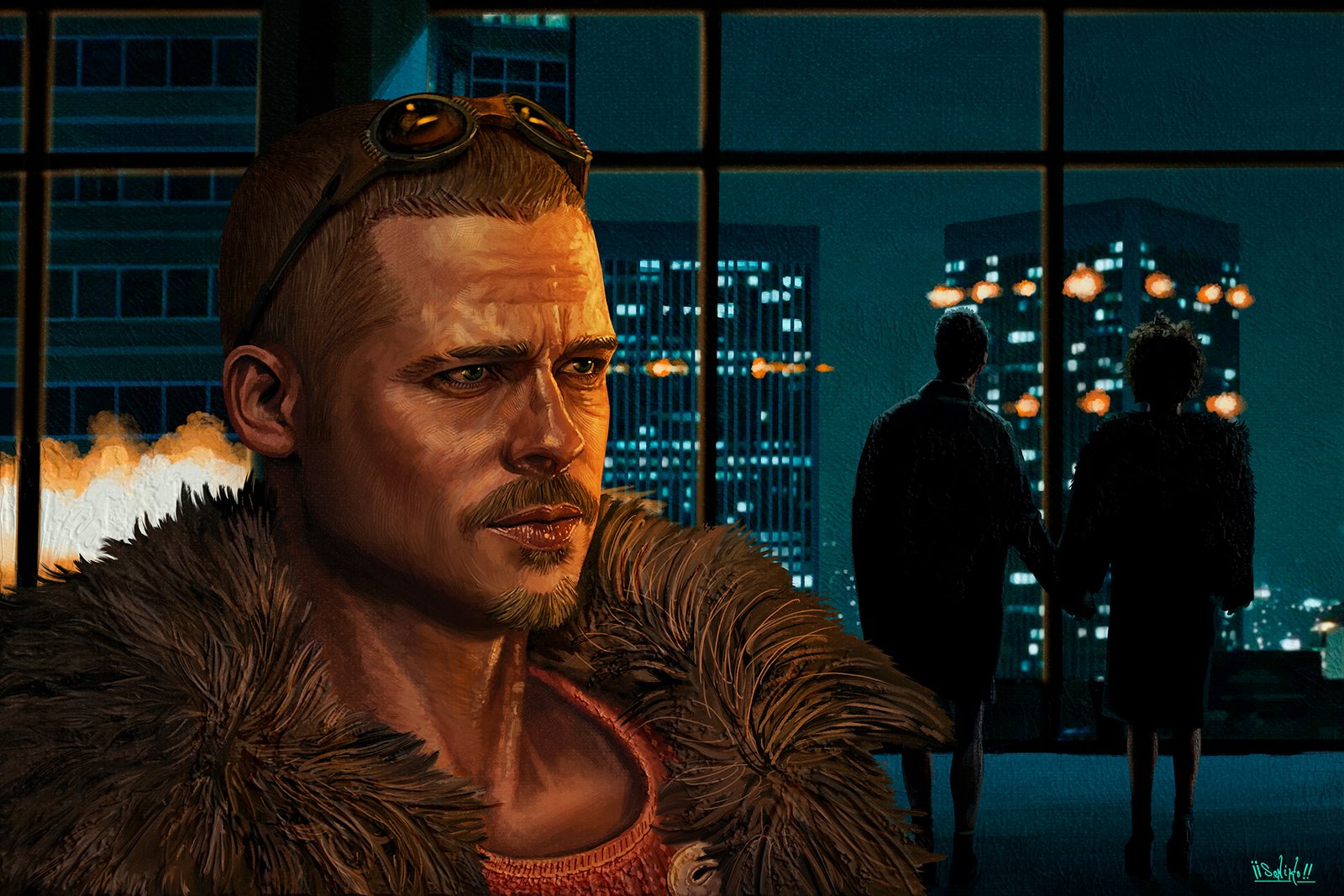Introduction
Fight Club Quotes: “Fight Club,” both the novel by Chuck Palahniuk and the film adaptation by David Fincher, has left an indelible mark on popular culture. Its raw exploration of masculinity, consumerism, and identity has resonated with audiences worldwide. One of the most compelling aspects of “Fight Club” is its dialogue, rich with memorable and thought-provoking quotes. This article delves into some of the most significant quotes from “Fight Club,” analyzing their philosophical implications and their impact on both the narrative and the audience.
The Nature of Identity
One of the central themes of “Fight Club” is the search for identity. The protagonist, often referred to as the Narrator, embodies the struggle of modern man trying to find himself in a consumer-driven society.
Quote: “I am Jack’s smirking revenge.”
This quote captures the essence of the protagonist’s fractured identity. The use of “Jack” is a reference to the old Reader’s Digest articles where body parts would narrate their own experiences (e.g., “I am Joe’s liver”). The Narrator’s use of “Jack” highlights his dissociation and the internal conflict within himself. His “smirking revenge” suggests a turning point where he begins to reject societal norms and the consumerist identity forced upon him.
Quote: “People are always asking me if I know Tyler Durden.”
Tyler Durden, the alter ego of the Narrator, represents the embodiment of his suppressed desires and frustrations. This quote foreshadows the critical twist of the story, revealing the complex nature of identity. It also hints at the duality within the Narrator, where Tyler becomes the person he wishes he could be but cannot due to societal constraints.
Quote: “You’re not your job, you’re not how much money you have in the bank. You’re not the car you drive. You’re not the contents of your wallet.”
This quote is one of the most iconic from “Fight Club,” serving as a manifesto for rejecting materialism and societal definitions of success. It challenges the audience to look beyond external markers of identity and consider what truly defines them. This rebellion against consumer culture is a core theme of the story, urging individuals to find self-worth beyond possessions.
Consumerism and Its Discontents
“Fight Club” is a scathing critique of consumerism, portraying it as a force that dehumanizes individuals and erodes true identity.
Quote: “The things you own end up owning you.”
This statement succinctly encapsulates the novel’s critique of consumerism. It suggests that in the pursuit of material possessions, people become enslaved by their belongings. This loss of freedom and autonomy is a recurring theme, highlighting the emptiness that accompanies the accumulation of material wealth.
Quote: “Advertising has us chasing cars and clothes, working jobs we hate so we can buy shit we don’t need.”
This quote criticizes the manipulative power of advertising, which creates artificial desires and compels people to work in unfulfilling jobs to satisfy those desires. It underscores the hollow nature of consumer-driven happiness and questions the true cost of such a lifestyle on one’s soul and freedom.
Quote: “It’s only after we’ve lost everything that we’re free to do anything.”
Here, the idea of liberation through loss is explored. The Narrator’s journey involves stripping away all the trappings of his former life to discover a more authentic existence. This radical notion challenges conventional wisdom, suggesting that true freedom comes not from acquisition but from letting go of societal expectations and material possessions.
Masculinity and Violence
“Fight Club” delves deeply into the constructs of masculinity and the role of violence in shaping identity and society.
Quote: “I felt like destroying something beautiful.”
This quote reveals the darker side of the human psyche, where the urge to destroy stems from deep-seated frustration and anger. It also touches on the destructive nature of unchecked masculinity, where beauty and vulnerability are often seen as threats to be eradicated rather than cherished.
Quote: “You have to consider the possibility that God does not like you. He never wanted you. In all probability, He hates you. This is not the worst thing that can happen.”
Tyler’s nihilistic perspective challenges traditional notions of masculinity tied to divine purpose and favor. By rejecting the idea of a benevolent creator, he forces the Narrator and the audience to confront their insignificance and find meaning within themselves rather than relying on external validation.
Quote: “We’re a generation of men raised by women. I’m wondering if another woman is really the answer we need.”
This provocative statement critiques the feminization of men in contemporary society and suggests that the solution to male identity crises lies elsewhere. It reflects the confusion and frustration felt by many men in a world where traditional gender roles are in flux, pushing the audience to rethink the foundations of masculinity.
The Anarchist’s Manifesto
“Fight Club” also serves as an anarchist’s manifesto, promoting the breakdown of societal structures and the quest for personal freedom.
Quote: “It’s only after disaster can we be resurrected.”
This quote embodies the philosophy of rebirth through destruction. By tearing down existing structures, new and potentially better systems can emerge. This radical idea encourages viewers to embrace chaos as a catalyst for positive change.
Quote: “In the world I see—you are stalking elk through the damp canyon forests around the ruins of Rockefeller Center.”
Tyler’s vision of a post-apocalyptic world represents a return to primal existence, free from the trappings of modern civilization. This quote paints a vivid picture of a society stripped to its core, where humanity can reconnect with its essential nature.
Quote: “I say never be complete, I say stop being perfect, I say let… let’s evolve, let the chips fall where they may.”
This call to abandon the pursuit of perfection in favor of evolution and change highlights the importance of embracing imperfections and uncertainties. It challenges the audience to let go of rigid expectations and allow life to unfold naturally.
Conclusion
“Fight Club” is a rich tapestry of philosophical musings and societal critiques, wrapped in a narrative that challenges the status quo. Its quotes continue to resonate because they tap into universal themes of identity, consumerism, masculinity, and the quest for meaning. By dissecting these quotes, we gain deeper insight into the novel’s and film’s enduring appeal and the profound questions they raise about the human condition.
In a world increasingly dominated by materialism and superficial values, “Fight Club” serves as a reminder to seek deeper truths and redefine what truly matters. Its message, delivered through sharp and memorable dialogue, remains relevant and thought-provoking, encouraging us to look beyond the surface and question the world around us.
In this article, we examined the Fight Club Quotes topic, see you in the next articles.

